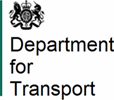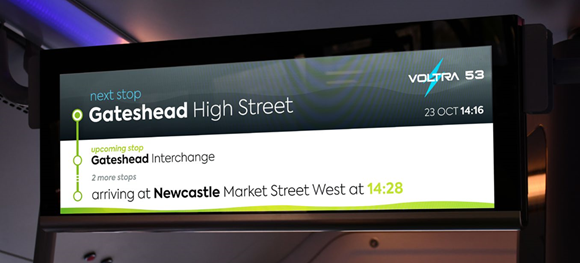
30 Mar 2023
New onboard announcements to make Britain’s buses accessible for everyone

- Onboard travel announcements to become mandatory across Britain’s bus network
- Industry supported through £4.65m fund for small operators to upgrade vehicles
- Roads and Accessibility Minister Richard Holden: “Massive boost for passenger independence”
Disabled passengers across Great Britain will be able to travel more confidently thanks to new laws that will boost accessibility for everyone.
Today, the Department for Transport is introducing rules that will require almost every local bus or coach service to provide audible announcements and visual displays identifying the route and direction, each upcoming stop, and the beginning of any diversions.
The Government is supporting industry to upgrade their vehicles with £4.65 million in funding for the smallest bus and coach companies, and the changes will be implemented gradually, with almost all vehicles required to comply by October 2026.
At present, there is patchy provision across the country, with only 30% of buses outside London providing this information, which can be a major barrier for disabled people wanting to travel by bus or coach.
Clear audible and visible information will also benefit non-disabled people, helping those who are travelling on an unfamiliar bus route, and giving passengers confidence that they will not be left stranded at the wrong stop late at night.
Roads and Accessibility Minister Richard Holden said: “Everyone deserves to take the bus with confidence, and this is a massive boost for passenger independence.
“Simple and effective audible and visible information should be a baked-in feature of a modern bus service to help people reach their destination, wherever they travel in Great Britain.”
To ensure the information provides real-life benefits, the Department for Transport has worked closely with disabled passengers, user groups and the bus and coach sector, whilst giving operators the flexibility to choose solutions suitable for their services.
The AV aids will include ensuring audio is available through induction loop systems, and all new vehicles introduced after October 2024 must also include visible information which can be seen by a wheelchair user when travelling in a rearward facing wheelchair space.
Guide Dogs’ Chief Executive, Tom Wright CBE, said: “For so many people, buses are key to opening opportunities to get out independently: to go out to work, get to appointments, and to see friends. But for many people with sight loss, bus travel can prove difficult or near impossible.
“At Guide Dogs, we are delighted that the Government has taken this significant step in making bus travel more accessible to people with a visual impairment. Our research shows that over half of people with sight loss have missed their stop due to a lack of AV, and many people avoid bus travel altogether because buses remain inaccessible.
“Today’s announcement, and the financial support behind it, will open up opportunities for people with sight loss to live independently.”
This announcement forms part of the Government’s commitment to improve disabled people’s experience on our transport system and build stronger communities, including through our Inclusive Transport Strategy, which aims to create accessibly equality on the network by 2030. It further builds on Government’s ambition to encourage people back onto buses after the pandemic, following £2 billion in funding to support the bus sector since 2020.
ENDS
Contact Information
Simrah Basit
Press Officer
DfT
Simrah.Basit@dft.gov.uk
Notes to editors
- The regulations will apply to most services, with some exemptions which are detailed in the Department’s guidance for operators.
- Our 2018 Inclusive Transport Strategy aims to create a transport system that offers equal access for disabled passengers by 2030, with assistance if physical infrastructure remains a barrier.

